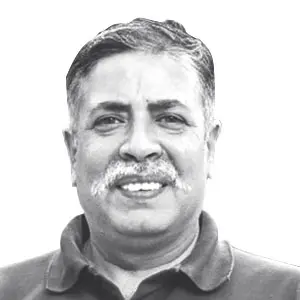 How do you define eco-diversity when it comes to sustainable packaging materials, and why is it important?
How do you define eco-diversity when it comes to sustainable packaging materials, and why is it important?
Eco diversity, in the context of packaging materials, refers to the various eco-friendly resources that are available to us due to the abundance of various species and ecosystems in a particular area. There are various kinds of raw materials that are used for manufacturing sustainable packaging material, such as bamboo, cornstarch, and seaweed, although many of these are still not 100% biodegradable.
While Pakka makes use of agricultural material, the company’s operation differs from other companies in terms of the raw material being used. Pakka is involved in the manufacturing of packaging material, using sugarcane residue, commonly known as bagasse, as the primary raw material. The raw material is procured from sugar factories in nearby areas, which do not have any further use of bagasse. If not used for creating packaging material, the best use of the waste material would be to make boiler fuel. Worse still, when in surplus, bagasse is burnt down, thereby adding to pollution. Therefore, it is extremely beneficial to be situated in an eco-diverse or agriculturally rich environment.
How do you ensure that your packaging materials are both environmentally friendly and economically viable?
A very important aspect of our working model is that Pakka procures bagasse as raw material and then produces pulp, which is then converted to packaging material and food service products. Most of the other companies purchase pulp and then convert it into paper and products. This gives us leverage on 2 fronts. Firstly, we are able to monitor the quality of our products from the first stage of manufacturing. Second, this gives us a cost advantage that we are able to pass on to the customer, thereby maintaining quality-price balance.
How do you stay ahead of emerging regulations and standards in the sustainable packaging industry?
The sustainable packaging industry is still developing, and we have been fortunate to be of service in this domain way before many of the other companies, or even the regulating authorities, stepped in. In order to ensure that we always have a grip on the emerging regulations in the industry, we maintain a proactive approach. We stay up to date with the voluntary standards, certifications, and best practices in the industry. By implementing sustainable measures ahead of regulations, we aim to demonstrate leadership and stay ahead of the curve. Pakka has been the recipient of numerous awards related to sustainability, the most recent being the National Award for Excellence in Water Management by CII. Pakka is also part of the distinguished list of Top 50 Workplaces in Manufacturing in India.
Help us understand the opportunity landscape for your company. What are your growth strategies?
Pakka is focused on manufacturing solutions for food packaging. The food packaging market as per 2022 estimates was worth $360 billion. The market is growing at a rapid pace and by 2030, it is expected to grow to $600 billion. Further, the world is moving towards sustainable and regenerative solutions and looking for alternatives for single-use plastic, styrofoam, etc. Thus, the opportunity is huge and Pakka already has an advantage as the products are well received not just in India, but across the world.
Currently, Pakka has one factory, which is situated in the Indian town of Ayodhya. The annual capacity of the plant is 42000 tonnes. With the growing demand for compostable packaging material, the plant is undergoing expansion and the capacity will be increased to around 72000 tonnes in a span of a year. Likewise, another big development is that Pakka is also establishing another plant in Guatemala, America, which will be the company’s first overseas plant. It is expected to be the biggest facility for compostable flexible packaging and moulded tableware products in the world. Flexible packaging made of single-use plastic is a problem that the world is tackling with at the moment, and Pakka has taken steps to create alternatives in this space.
Give us a snapshot of your financial profile.
Pakka Ltd. posted the highest annual revenue of Rs. 419.9 crore in FY23 with the highest FY profit of Rs. 72.3 crore (EBIDTA of 23%) in FY23. It posted the highest exports of 27% of the total volume production as moulded tableware production was up by 24% — almost 50% of its installed capacity as of now.
What are the key risks facing your company and how are you managing them?
One of the biggest problems that the industry is facing at the moment is the price acceptance for alternatives for single-use plastic. In the current market scenario, it is understood that compostable products cost higher, whether it is molded fiber products, flexible packaging or food carry and wrapping materials. It is important for customers to shoulder the responsibility of working towards a cleaner planet. We have come across many customers who are willing to pay higher for sustainable alternatives. However, more awareness is needed in this regard, both among large corporations and smaller businesses.
Another aspect that needs improvement is skill development in the compostable packaging solutions industry. In our own capacity, we’re looking to tackle this problem by establishing vocational training institutes with specializations in this space.
Related Tags

![]() IIFL Customer Care Number
IIFL Customer Care Number
(Gold/NCD/NBFC/Insurance/NPS)
1860-267-3000 / 7039-050-000
![]() IIFL Capital Services Support WhatsApp Number
IIFL Capital Services Support WhatsApp Number
+91 9892691696
IIFL Capital Services Limited - Stock Broker SEBI Regn. No: INZ000164132, PMS SEBI Regn. No: INP000002213,IA SEBI Regn. No: INA000000623, SEBI RA Regn. No: INH000000248, DP SEBI Reg. No. IN-DP-185-2016, BSE Enlistment Number (RA): 5016
ARN NO : 47791 (AMFI Registered Mutual Fund & Specialized Investment Fund Distributor), PFRDA Reg. No. PoP 20092018

This Certificate Demonstrates That IIFL As An Organization Has Defined And Put In Place Best-Practice Information Security Processes.